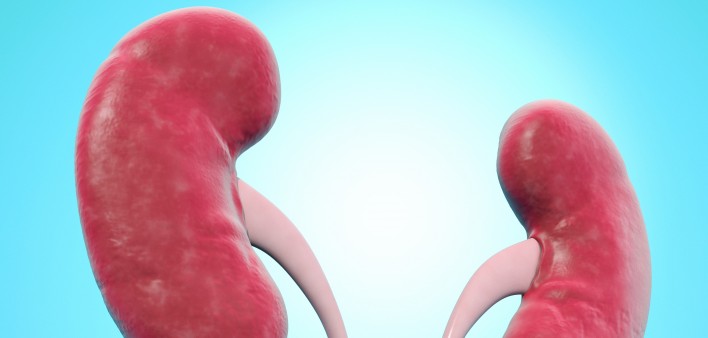HIV-positive people who start treatment with normal kidney function have a modest risk of reduction in the organ’s function, an effect that is cumulative during a period of up to six years, Reuters Health reports. Publishing their findings in Lancet HIV, researchers analyzed data on nearly 24,000 people with HIV from the Data Collection on Adverse events on Anti-HIV Drugs study.
All of the participants had normal kidney function upon starting antiretrovirals (ARVs). They took either Viread (tenofovir disoproxil fumarate, or TDF), Norvir (ritonavir)–boosted Reyataz (atazanavir), Norvir–boosted Kaletra (lopinavir), other Norvir–boosted protease inhibitors, or Ziagen (abacavir).
After two years, 0.11 percent of the individuals had chronic kidney disease. This proportion rose to 0.49 percent after five years and 1.46 percent after eight years. Participants developed chronic kidney disease at a rate of 0.176 percent per year.
Factors associated with an increased risk of chronic kidney disease included older age, a lower estimated glomerular filtration rate (eGFR) at the study’s outset, ARV treatment, and cardiovascular risk factors like smoking, high blood pressure and diabetes. Specific ARVs associated with an increased risk of chronic kidney disease included Viread, Norvir–boosted Reyataz, and Norvir–boosted Kaletra. After five years of treatment, Viread raised the risk of chronic kidney disease 1.94-fold, while Norvir-boosted Reyataz raised the risk 2.44-fold, and Norvir-boosted Kaletra raised the risk 1.66-fold.
The U.S. Food and Drug Administration (FDA) recently approved Gilead Sciences’ Genvoya (elvitegravir/cobicistat/emtricitabine/tenofovir alafenamide, or TAF), which includes a new take on Viread that is less toxic to the bones and kidneys.
To read the Reuters article, click here (free registration with Medscape is required).
To read the study abstract, click here.

Istock






2 Comments
2 Comments